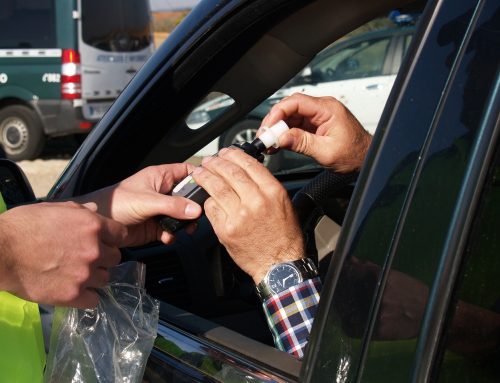Understanding Driver Penalty Points and the Driver Risk Premium in British Columbia
Obtaining a driver’s licence is a huge milestone in most people’s lives, but failing to maintain your driving record can be a costly mistake. The Insurance Corporation of British Columbia (ICBC) has stringent rules regarding driving offences, and it only takes a surprisingly low number of points to find yourself facing many fees. You will likely pay a driver penalty point premium if you have more than three points on your driving record, many traffic offences, or criminal code convictions.
Driver Penalty Points
Driver penalty points are, essentially, demerit points that are assigned as a result of driving offences. Eventually, these points add up and can lead to license suspensions, a higher auto insurance premium, and extra fees.
Driver penalty points carry fees, but if the points accumulate, you will have to pay additional fees outside of higher insurance premiums. These fees start at $252 and quickly escalate into annual payments in the thousands and are not something that anyone should take lightly.
How Long Do Points Stay On Your License in BC?
Your driving record stays with you for your entire file, but ICBC will often consider either the last five years or less of your driving record when considering fines or other consequences. For example, when considering whether to prohibit you from driving, ICBC will consider the last five years. For the Driver Penalty Point Premium ICBC will consider a 12-month period, while the Driver Risk Premium will consider the last three years.
How Many ICBC Points Can You Have Before a Driver Penalty Point Premium Kicks In?
As mentioned, you are allowed three points within the 12-month period, after which you will be charged an annual fee. Unfortunately for drivers, this is easier than it looks. While some driving violations don’t carry any penalty points, many carry at least two, and the most common ones like speeding carry three. Using an Electronic Device while driving (using a cell phone) carries four points, so a single ticket can mean paying additional fees through that Driver Penalty Point Premium. This is also in addition to any fees for the actual tickets themselves.
The most serious charges such as any Criminal Code driving conviction or driving while prohibited can result in 10 points on your driving record. Even if you had no other points in the last 12-months, that would result in a fine of $1,108. If you already had a previous three point offence then that fine would be $2,056. The fines escalate very quickly as you can see on ICBC’s website: https://www.icbc.com/driver-licensing/tickets/Pages/Driver-Penalty-Points.aspx.
What is the Driver Risk Premium?
In addition to the Driver Penalty Point Premium, ICBC has a separate system for serious offences called the Driver Risk Premium. The consequences of a driver risk premium are serious, and the fee structure is nearly impossible to get out of unless you willingly give up your licence, which is why it is important to have the support of an experienced driving offence lawyer if you are facing traffic tickets of any kind.
Drivers are subject to the Driver Risk Premium (DRP) if, in the last three years, they have:
- one or more 10-point Motor Vehicle Act Convictions
- One or more criminal code convictions for driving-related reasons
- An excessive speeding conviction
- Two or more roadside suspensions/prohibitions
- Two or more convictions in three years related to the use of an electronic device while driving (i.e. distracted driving or texting while driving)
What makes the driver risk premium program more intimidating is the fact that you will have to pay the charges even if you don’t own a vehicle. The fees will continue to be billed annually until the charges fall off your driving record.
How Can A Lawyer Help Repeal a Driver Risk Premium?
Unfortunately, there are only two ways that you can escape the fees of the DRP, and both involve giving up your driver’s licence.
The first is to voluntarily give up your driver’s license for the entire billing period of your DRP, but be aware this is not a complete guarantee that your premium will be eliminated. You need to discuss the matter with the ICBC first to discuss what arrangements can be made in this situation.
The second is to give up your driver’s licence for thirty days or more during the billing period in exchange for a reduced DRP. Once again, you should consult with the ICBC because every situation is different, and the convictions leveraged against you will heavily influence what type of deal can be arranged.
The best way to avoid the fees of the DRP is to have a lawyer help you in traffic court to ensure that these serious offences do not go on your driving record.
Dangers of Attempting to Self-Represent in Traffic Court
Given it does not take much for points to accumulate on your license, it is never a good idea to be self-represented in traffic court. Even a small charge such as a speeding ticket can eventually be the point that pushes you past the three-point mark during your assessment period.
Therefore, it is essential to have a driving offence lawyer represent you in traffic court, regardless if you are contesting a speeding ticket or criminal code offences, to avoid costly points that will result in the Driver Penalty Points Premium or a DRP.












